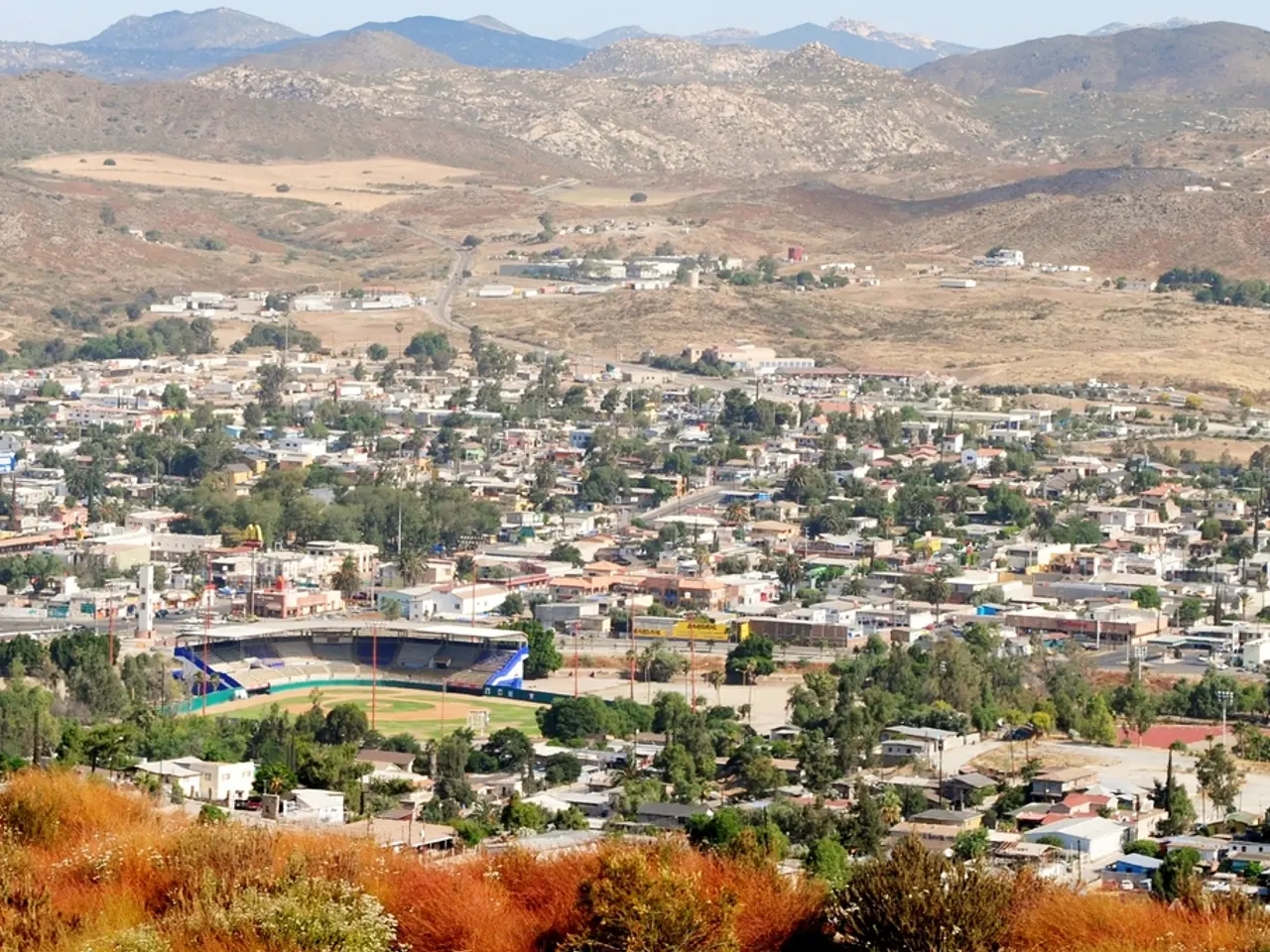Supporting parties linked to the government fall behind with a combined 10% in latest survey results
In the political landscape of Cyprus, a significant shift is underway, with the newly formed alliance ALMA drawing substantial voter flows from established parties such as DIKO and DISY. According to a recent IMR poll, the left-wing party AKEL remains the frontrunner with 19% voting intention, while ALMA follows closely in fourth place with 12%.
The poll also reveals that 7 in 10 citizens believe Cyprus is on the wrong track, while only 26% feel it is moving in the right direction. Economic issues and social concerns are the primary drivers of voter decisions, with 54% citing economic issues and 42% social issues as their primary concern.
The center-right party DISY has fallen to second place with 18% voting intention, a significant drop from its leading position in the most recent European Parliament elections. Meanwhile, the far-right party ELAM is in third place with 13% voting intention, indicating a fierce battle for third place between ELAM and ALMA in the next election.
Smaller parties such as the Greens and Volt, EDEK, and DIPA struggle near the margin of error, raising doubts about their parliamentary survival. The Greens and Volt, as well as EDEK and DIPA's parliamentary survival, remain uncertain.
Notably, DIKO, historically a key partner supporting the current government, has collapsed to fifth place with 7% voting intention. This decline could signal a shift in voter allegiances away from traditional parties and towards newer alliances such as ALMA.
The trends indicate that the parliamentary map could look radically different in the next year. Combined, the three parties backing the administration have a mere 10% voting intention, suggesting a potential power shift in the Cypriot political sphere.
AKEL, DISY, DIKO, ELAM, and other parties have maintained their presence in national politics. AKEL, despite being a significant force in national politics, is represented in the European Parliament. DISY led the European election results, indicating strong support among Cypriot voters. DIKO maintains a parliamentary presence, but with a smaller share compared to DISY and AKEL. ELAM gained a strong foothold, reflecting a trend seen across Europe.
The ongoing debate around labor rights and collective agreements, particularly in the hotel and tourism sector, may influence party support and public opinion. Cypriot elections are considered competitive and pluralistic, allowing a wide range of parties and groups to participate.
For the most accurate and up-to-date polling data specific to AKEL, DISY, DIKO, ELAM, ALMA, and other parties for the June 2023 IMR poll for Reporter, no direct results are available in the current sources. The above analysis is based on the most recent available election results and context. If you require exact polling percentages from IMR/Reporter for June 2023, this information is not present in the current data.
[1] Politico.eu, European Parliament Election Results (Updated 12 months ago/2024 cycle) [2] Various news sources, ongoing labor and social issues in Cyprus [4] Various news sources, electoral integrity in Cyprus
In the evolving political landscape of Cyprus, the left-wing party AKEL and the newly formed alliance ALMA are showing strong voter interest, with AKEL maintaining its frontrunner position and ALMA following closely behind. The poll also indicates that a significant number of citizens believe Cyprus is on the wrong track, highlighting economic and social concerns as their primary drivers. The upcoming election could potentially result in a power shift, as the three parties currently backing the administration have a mere 10% voting intention. The ongoing debate around labor rights and collective agreements could further influence party support and public opinion.







